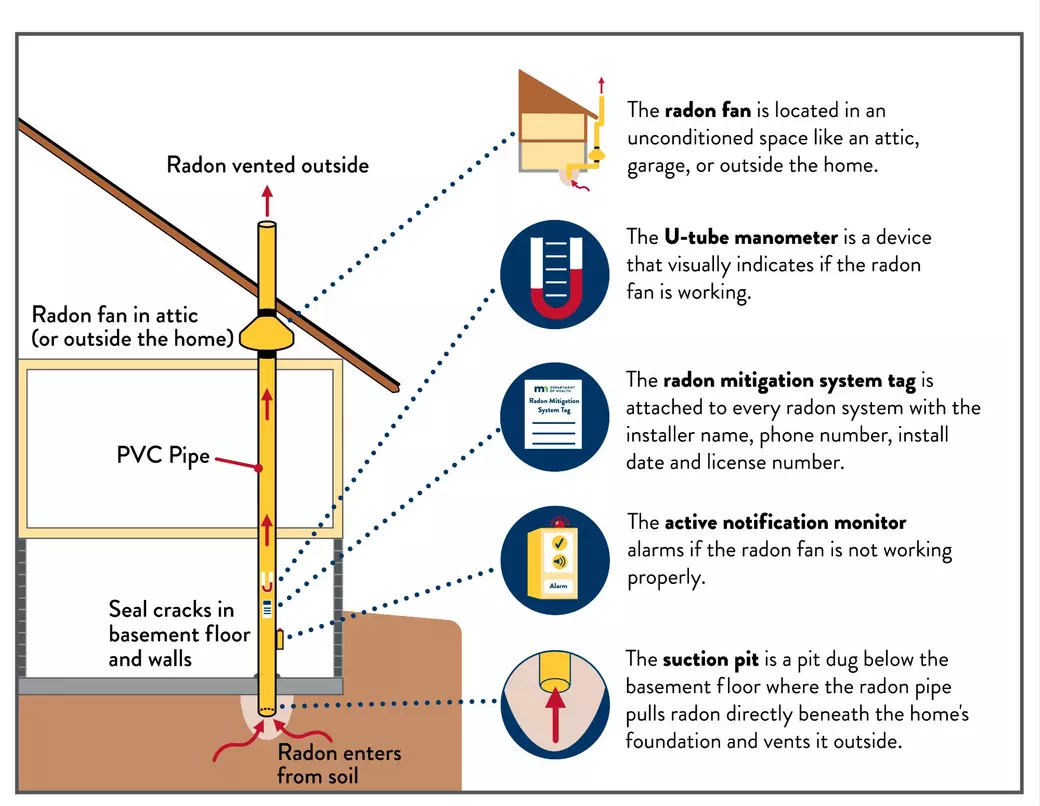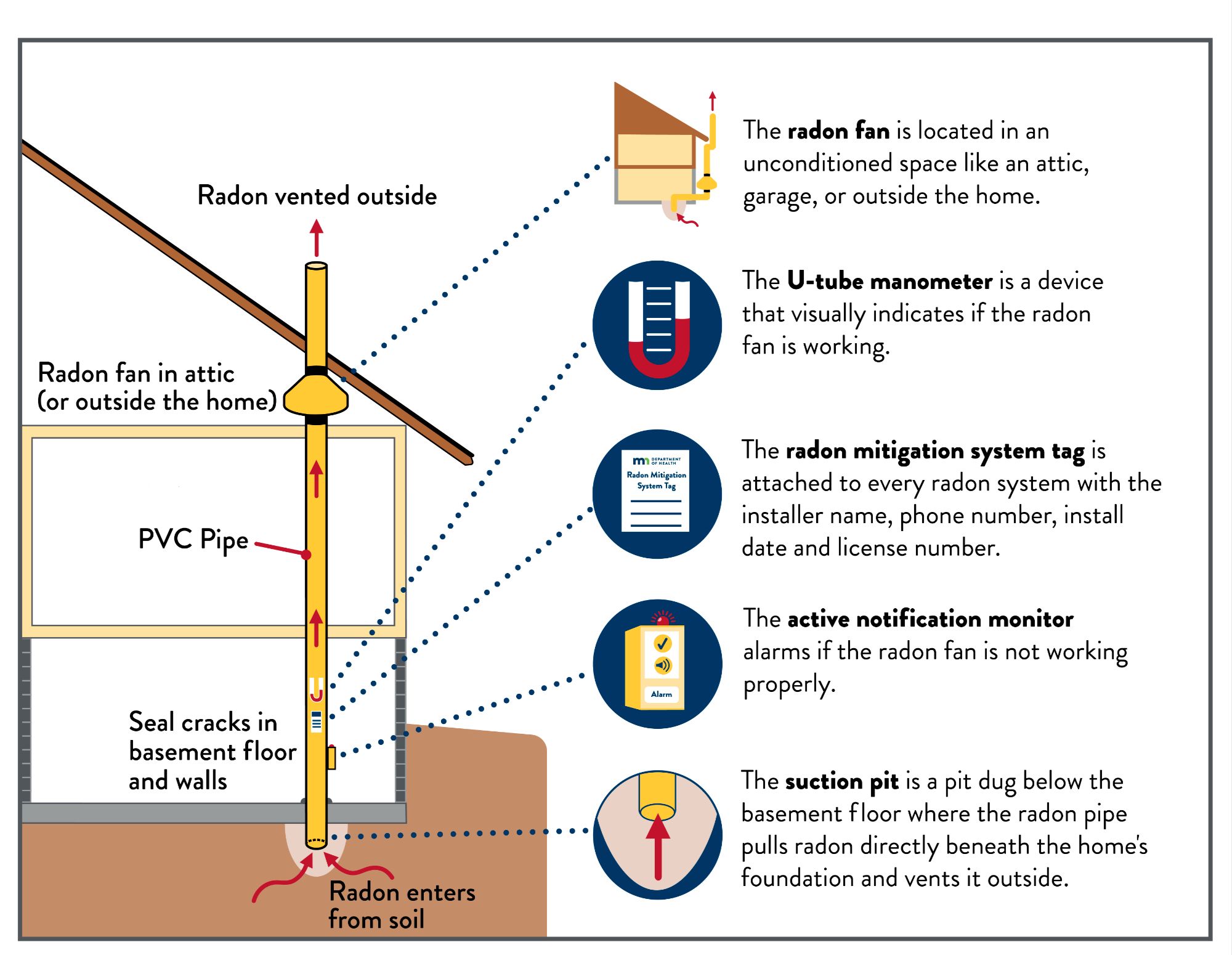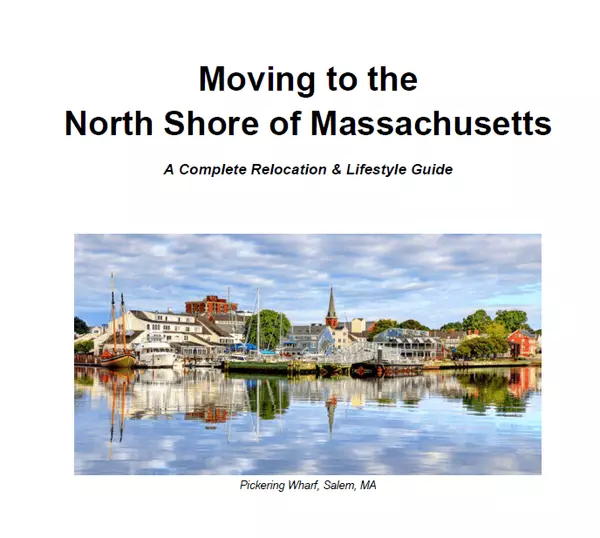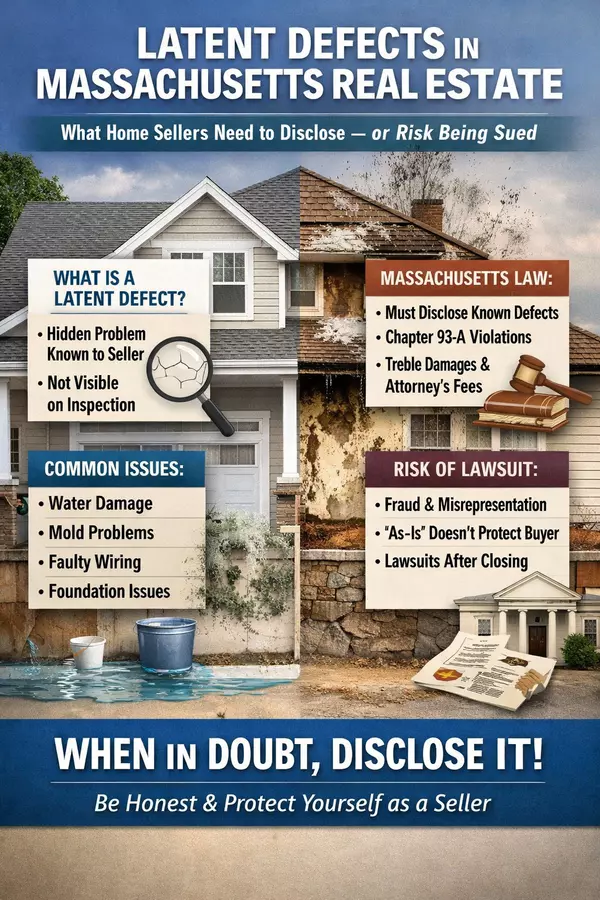Radon and Real Estate: What Every Buyer and Seller in Massachusetts Needs to Know

Radon and Real Estate: What Every Buyer and Seller in Massachusetts Needs to Know
When you’re navigating the complexities of a real estate transaction, the last thing you want is a surprise. One potential issue that often comes up during the home inspection period is radon. But what is it, and how big of a deal is it really?
For buyers and sellers in Beverly and across Massachusetts, understanding radon is key to a smooth and successful transaction. Here’s a straightforward guide to this invisible gas.
What Exactly is Radon?
Radon is a naturally occurring, colorless, and odorless radioactive gas. It’s formed by the natural decay of uranium found in soil, rock, and water. Because it's a gas, it can easily seep from the ground into a home through cracks in the foundation, gaps around pipes, sump pits, and other small openings. Once inside, it can become trapped and accumulate to unsafe levels.
 Why is Radon a Concern?
Why is Radon a Concern?
The U.S. Environmental Protection Agency (EPA) and the Surgeon General's Office have identified radon as the second leading cause of lung cancer in the United States, responsible for thousands of deaths each year. The risk is particularly1 high for smokers. The good news is that the risk is largely preventable, and that starts with testing.
Radon in a Real Estate Transaction
Radon is a common point of discussion during the home inspection phase. Here’s how it typically plays out for both sides of the deal:
For the Buyer:
As a buyer, you have the right to conduct a radon test as part of your home inspection contingency. A professional will place a testing device in the lowest livable area of the home for 48-72 hours. The results are measured in picocuries per liter of air (pCi/L).
The EPA has set an "action level" of 4.0 pCi/L. If the test results come back at or above this level, it is recommended that you take action to reduce the radon levels in the home. This doesn’t mean you should walk away from the house! It simply becomes a point of negotiation. Typically, buyers will ask the seller to install a radon mitigation system before the closing.
For the Seller:
Receiving a high radon test result can be alarming, but it’s a very common and fixable issue. In Massachusetts, while you are not required to test for radon, you must disclose any known hazards to a potential buyer. If a previous test showed high levels that were not remediated, this must be shared.
Many sellers choose to be proactive and test their home for radon before listing it. If the levels are high, they can install a mitigation system on their own terms, making it a non-issue for potential buyers and avoiding a potential hurdle during negotiations.
The Solution: Radon Mitigation
If a home has elevated radon levels, the solution is straightforward and highly effective: a radon mitigation system.
A typical system involves installing a vent pipe that runs from beneath the foundation or a sealed sump pump cover and vents the radon gas harmlessly above the roofline. A small, continuously running fan creates a vacuum that pulls the gas from under the house before it can ever enter.
These systems are quiet, efficient, and relatively inexpensive to install, usually costing between $1,200 and $2,500. A home with a radon mitigation system is a safer home, and its presence should be seen as a positive feature by buyers.
The Bottom Line
Radon is a common environmental factor in New England, but it should not be a deal-breaker. Testing is simple, and the problem is completely fixable. By understanding the issue and knowing the steps to address it, both buyers and sellers can ensure that radon doesn't derail their journey to a successful closing.
Jim Armstrong
Certified Massachusetts Real Estate Instructor
The Armstrong Field Group at Aluxety Real Estate
Categories
- All Blogs (102)
- Beverly, MA (5)
- Buying a Home (44)
- Condos For Sale (3)
- Danvers, MA (1)
- Home Ownership (28)
- Homes For Sale (7)
- Living on the North SHore (12)
- Mortgages (4)
- Prospective Real Estate Agents (1)
- Real Estate Careers (8)
- Real Estate Market Conditions (20)
- Real Estate School (1)
- Salem, MA (7)
- Selling a home (50)
Recent Posts












